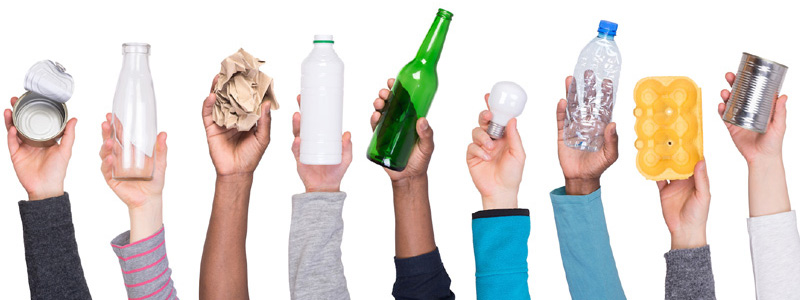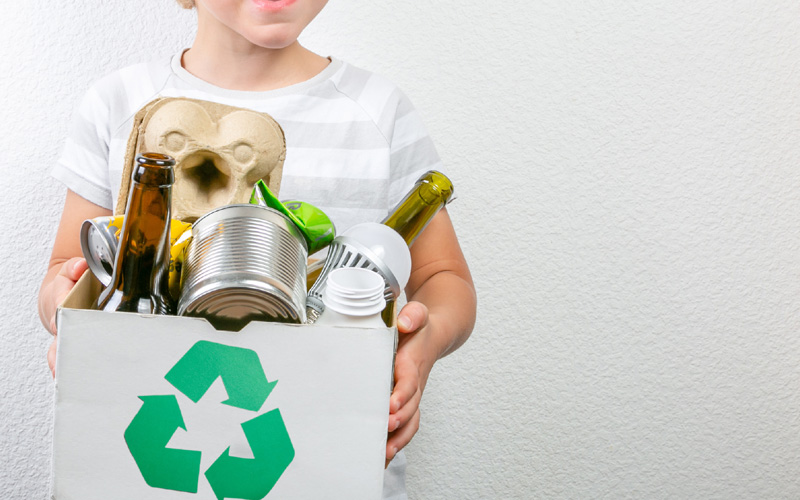Eco-conscious Brits should look to avoid these eight unrecyclable items if they want to reduce their carbon footprint and look after their environment.
With recent reports that many plastic food pots and trays are unrecyclable, the recycling experts at JunkHunters have put together a handy list of unsustainable plastic items to steer clear of.
Research by the Local Government Association (LGA)*has shown that ready meal packaging and yoghurt pots are some of the worst culprits for recycling.
The commonly used plastic yoghurt pots and ready meal trays are made from a mixture of plastics which councils find very difficult to recycle.
The LGA analysis found that 525,000 tonnes of plastic pots, containers and trays are used by households in the UK each year, but only 169,000 tonnes of this waste can actually be recycled.*
Founder of JunkHunters, Harsha Rathnayake said: “Many councils are ill equipped to process widely used trays and containers which are made from blended plastics, due to limited resources.
“Black plastic trays, popularly used for ready meals are one of the worst culprits for recycling as the colour cannot be properly scanned during the recycling process meaning that they often end up in landfill.
“These black trays are still widely used as they make ready meals look aesthetically pleasing, but it’s important when making a purchase to take this into account and avoid buying them.
“We’ve looked into the most unsustainable plastic items to help consumers make responsible choices for the future of the planet.”
Here’s the list of unrecyclable plastics to avoid:
 1.Yoghurt pots
1.Yoghurt pots
PET yoghurt pots can be recycled, but there are many others made from polystyrene that are not accepted in plastic recycling plants. Double check yoghurt pots are made from PET before purchasing.
2. Black ready meal trays
The infrared light used to scan and sort items at plastic recycling centres has difficulty recognising the colour black, which can often make the sorting process difficult. Whilst efforts are being made to introduce new technology to sort this issue, try and steer clear of using black ready meal trays to help the environment.
3. Punnet
Fruit and vegetable punnets are often made using a combination of polymers which includes polystyrene. Polystyrene is not accepted in plastic recycling plants.
4. Plastic water bottles
Always check plastic water bottles are recyclable before buying, or do the environment a favour and stop buying them altogether. Buy a reusable water bottle and simply rinse and refill throughout the day.
5.Plastic bags
Avoid using unrecyclable plastic bags where possible and if you do need a bag to carry your items in then take one from home. You will avoid a 5p charge and stop the worldwide pollution problem from getting worse.
6. Wet wipes
The synthetic plastic fibres that make up wet wipes often prevent them from being recycled. Opt for eco-friendly biodegradable wipes or simply avoid using them altogether and look for alternative methods for cleaning.
7. Straws
Cafes, pubs and restaurants nationwide are having a massive crackdown on straws, but there are still many establishments that will offer them with drinks. As a consumer, simply avoid requesting plastic straws and if you can’t enjoy a beverage without one you can purchase reusable metal straws in retailers and take it with you to use.
8. Cotton buds
A make-up lover’s dream, but the reality is plastic cotton buds are detrimental to the environment. The government is currently debating whether to ban this item as many buds end up in landfill or flushed down toilets where they can cause damage if consumed by wildlife.
*https://www.local.gov.uk/about/news/two-thirds-plastic-packaging-pots-and-trays-unrecyclable



